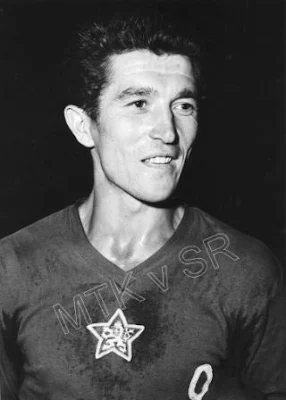Gilles Jacquier was a
French photojournalist and
reporter for
France Télévisions died from grenade attack he was 43.. Jacquier worked as a special correspondent for
Envoyé Spécial, one of France's best known documentary programs which airs on
France 2.
[2] He had a successful career, has covered major international military conflicts and won many awards during his life.
[3] He was killed on 11 January 2012 while covering the ongoing
Syrian uprising in
Homs,
Syria.
[2] Jacquier was the first Western journalist killed in Syria since the beginning of the Syrian civil war.
[4]
Biography
Career
Jacquier started his career in 1991 as a reporter images for
France 3 Lille.
[5] From 1994 to 1998, he worked for France 3 all around the world in many countries, such as
South Africa,
Japan,
Nepal.
[5]
Then, he worked for France 2 from 1999 to 2006 as a reporter to the editor and have dealed with conflicts army in
Iraq,
Afghanistan,
Kosovo.
[5] In 2002, Jacquier was shot and wounded near the al Ain
refugee camp outside
Nablus in the northern
West Bank while covering the
Second Intifada for France 2.
[6] Jacquier, who was wearing a
bullet proof vest, was shot in the
collarbone and recovered.
[6]
Speaking of his experiences, Jacquier said in an interview, "I hate war
but in war zone I can meet real people… Most of the time people are
really themselves, very sincere in front of a
camera
and it's impossible not be moved by their suffering… Above all, I like
filming people as close as possible to the action, with their
emotions, but without
voyeurism."
[2]
Since 2006, Jacquier worked for
Envoyé Spécial and reported from all over the world. He worked as a
war correspondent for more than twenty years.
[2] He shot and submitted most of his own footage.
[2] Jacquier reported on location from conflicts in
Afghanistan,
Algeria,
Iraq, the
Democratic Republic of the Congo, the
wars in the former Yugoslavia, and, more recently, the
Arab Spring from 2010 to 2012.
[2]
Personal life
Jacquier had a partner, Caroline Poiron. She is a reporter-photographer working for
Paris Match.
[7] They have twin girls: Apoline and Cloée (born 2010).
[8]
Gilles Jacquier was the son of Georges Jacquier, who was baker and founder of a ski school at
Bernex. His mother died two weeks after the birth of Jacquier's children. His grandfather was the mayor of
Bernex for thirty years.
[8]
Death
In 2012, Jacquier entered
Syria with a visa to cover the
Syrian civil war against
Bashar al-Assad.
[2]
Jacquier and cameraman, Christophe Kenck, were allowed to travel to the
city of Homs, a stronghold of the opposition revolt, with the
permission of the Syrian government.
[9]
On 11 January 2012, Jacquier was interviewing local Syrian
businesspeople and traveling to a Homs hospital, when a pro-government
demonstration organized nearby.
[10] Jacquier was killed in a rocket attack while reporting.
[10][11] Seven other people were also killed in the attack.
[10]
Context
Homs is an important place where people against the regime of Syrian President
Bashar al-Assad meet.
[12]
Two Swiss journalists,
Patrick Vallelian of
L'Hebdo and
Sid Ahmed Hammouche of
La Liberté, who were also working in Homs, accused the Syrian government of being behind the attack that killed Jacquier.
[13]
Opposition groups also accused the Syrian government of orchestrating
the Homs attack. Other opposition sources and Arab League observers
blamed anti-Assad rebels.
[14] Arab League mission reports from Homs state that Jacquier was killed by mortar shells fired by opposition forces.
[15]
French prosecutors announced a murder investigation into his death,
while the French government launched its own independent inquiry.
[16]
The investigation by the French Ministry of Defence concluded that
Jacquier had been killed in an attack carried out by anti-Assad rebels.
[17]
Reactions and Awards
Reactions
The head of information for
France Télévisions, Thierry Thuillier, called Jacquier one of the best journalists working for the group.
[2] On 23 January 2012,
France Télévisions baptized one of his studio "studio Gilles Jacquier" to honor him.
[18]
Awards
Jacquier and his colleague,
Bertrand Coq, jointly won the 2003
audiovisual Albert Londres Prize for their work on the France 2
documentary,
Naplouse, on the
Second Intifada in the
Palestinian Territories.
[2][19]
In 2007, Jacquier won the TV Journalism Ilari Alpi 2007 for "Ukraine, the last frontier", a reportage from Envoyé Spécial.
[20]
In 2009, he also won the Jean-Louis Calderon price (in the category
"video") about his reportage about Afghanistan, broadcasted in Envoyé
Spécial.
[21]
In June 2011, Jacquier received an award in Italy for best
international reporting Ilaria Alpi "Tunisia, the revolution in
progress".
[20]
In May 2012, Jacquier received the award International Journalism and
Human Rights gived by the Barcelona Human Rights Film Festival. His
widow, Caroline Poiron came to receive the award gived in hand by Javier
Couso, brother of the camara Jose Couso killed in Iraq in 2004 while he
was reporting the war.









